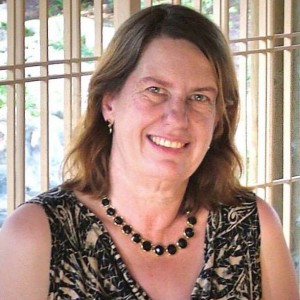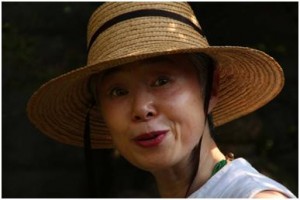Judges: Emiko Miyashita, George Swede, Deborah P. Kolodji
The Vancouver Cherry Blossom Festival’s 2016 Haiku Invitational welcomed a total of 696 poets participating in six categories, submitting a total of 1,384 blossoming haiku. After reading all the haiku several times, trying to feel the moment of each haiku by reflecting on our own experiences, we were intoxicated by the scent of cherry blossoms! The entered haiku created an overall impression of a surge of pink waves, and we relished in experiencing the detailed ripples from individual haiku. Most of them were composed outdoors, well observed, and precise. Some were going inward to one’s inner self, while some reached out to the outer space. The top selections this year combined “grandchild,” “driver’s license,” “cherry pits,” “breathe in the entire sky,” “soft pedaling of differences,” and “letting go” with the cherry blossoms, creating clear images of diverse scenes. Our message for next year’s Haiku Invitational is that not everything has been written about cherry blossoms yet!
Vancouver
double cherry blossoms
I breathe in
the entire sky
Rachel Enomoto
Burnaby, British Columbia
Imagine each blossom consisting of thirty petals or more, and those blossoms being in full bloom. There you are, standing right at the foot of the cherry tree, looking upward, in the lovely aroma. No one can resist breathing in deeply, and once you try, the entire sky is yours, covered with the double cherry blossoms, the massive pink is yours. This haiku brings readers right next to the author and we, too, are breathing to get a share of the sky! A lovely haiku in admiration of the double cherry blossom’s beauty and scent.
British Columbia
first driver’s licence—
showing friends
the cherry blossoms
Beth Skala
Nanaimo, British Columbia
A simple haiku, yes. But, in its simplicity revealing clearly the profound effect of one of spring’s great events. The enthusiastic new driver could be taking visiting friends to any number of sites–a mountain lookout, a secret beach, a favorite museum, etc. — but instead selects a glorious reminder of our transience. With seeming little effort this poem achieves a small but effective surprise and its resultant joy and sadness.
Canada
bowl of cherry pits
my grandson tries to guess
my age
Marianne Paul
Kitchener, Ontario
A haiku that captures attention by not mentioning cherry blossoms. Instead it focuses on the aftermath, edible fruit. It reminds us that blossoms are merely a fleeting prelude. The brilliant juxtaposition of cherry pits and growing old is deepened by the interaction of the grandchild and grandparent. The complexity of thought and feeling that results is the goal of every writer, but one not often achieved.
United States
soft pedaling
our differences
cherry blossoms
dl mattila
Oakton, Virginia
There are 54 different varieties of flowering cherry trees in Vancouver neighborhoods, each with distinct petal and blossom shapes, ranging in size, both in blossom and tree. Some blossoms are white; others are various shades of pink. Yet, all are cherry trees and the subtlety of the differences between them are profoundly beautiful. In a world where differences often divide us, this haiku playfully uses a pun to effectively contrast those differences, which sometimes seem impossible to bridge, with the slight variations in cherry blossoms, in effect saying if we could only “soft pedal” or overlook some of our differences to find common ground, we could enjoy the beauty of what makes each of us unique.
International
can’t stop grinning
at pink cherry blossoms
first grandchild
Jan Dobb
Canberra, Australia
Grinning, grinning, and again grinning at the pink cherry blossoms. The third line brings everything into the poem. The families, the healthy and lovely newborn baby, and the lives of three generations all come together. The cherry blossoms join the poet’s joyful moment with celebration. Surely all of us have provided such moments to our grandparents when we came to this world. As I grow older, I am beginning to think that a grandchild is the most precious gift in one’s life! The author’s joy is conveyed clearly and strongly.
Youth
Beneath the blossoms
hands swinging
letting go
Victoria Vieira, age 17
Coquitlam, British Columbia
There is a great sense of joy in this haiku. A child, perhaps, holding on to a branch, swinging back and forth, and then letting go. There is a feeling of being suspended between tree and ground, of letting go of all that worries us, our responsibilities and duties and deadlines and school assignments . . . and simply enjoying the moment. This juxtaposes beautifully with the canopy of blossoms, and I could imagine myself later, lying under this tree looking up at the blossoms and feeling content.
This year’s 2016 Haiku Invitational Judges:
 |
George Swede is cofounder Haiku Canada, 1977; poetry editor, Poetry Toronto, 1980–81; member, League of Canadian Poets, 1982; editorial team, Cross-Canada Writers’ Quarterly, 1982–90; membership chair, The Writers’ Union of Canada, 1993–96; editorial team, Red Moon Press, 2000–08; columnist, Simply Haiku, 2005–08; honorary curator, American Haiku Archives, 2008–09; editor, Frogpond: Journal of the Haiku Society of America, 2008–12. George’s poetry has appeared in periodicals around the world and in 38 collections by publishers in Canada, the U.K and the U.S., the latest being Micro Haiku: Three to Nine Syllables, 2014. HIs work has been translated into at least 23 languages. Detailed information is available athttps://en.wikipedia.org/wiki/George_Swede, and his personal website ishttp://home.primus.ca/~swede/. |


